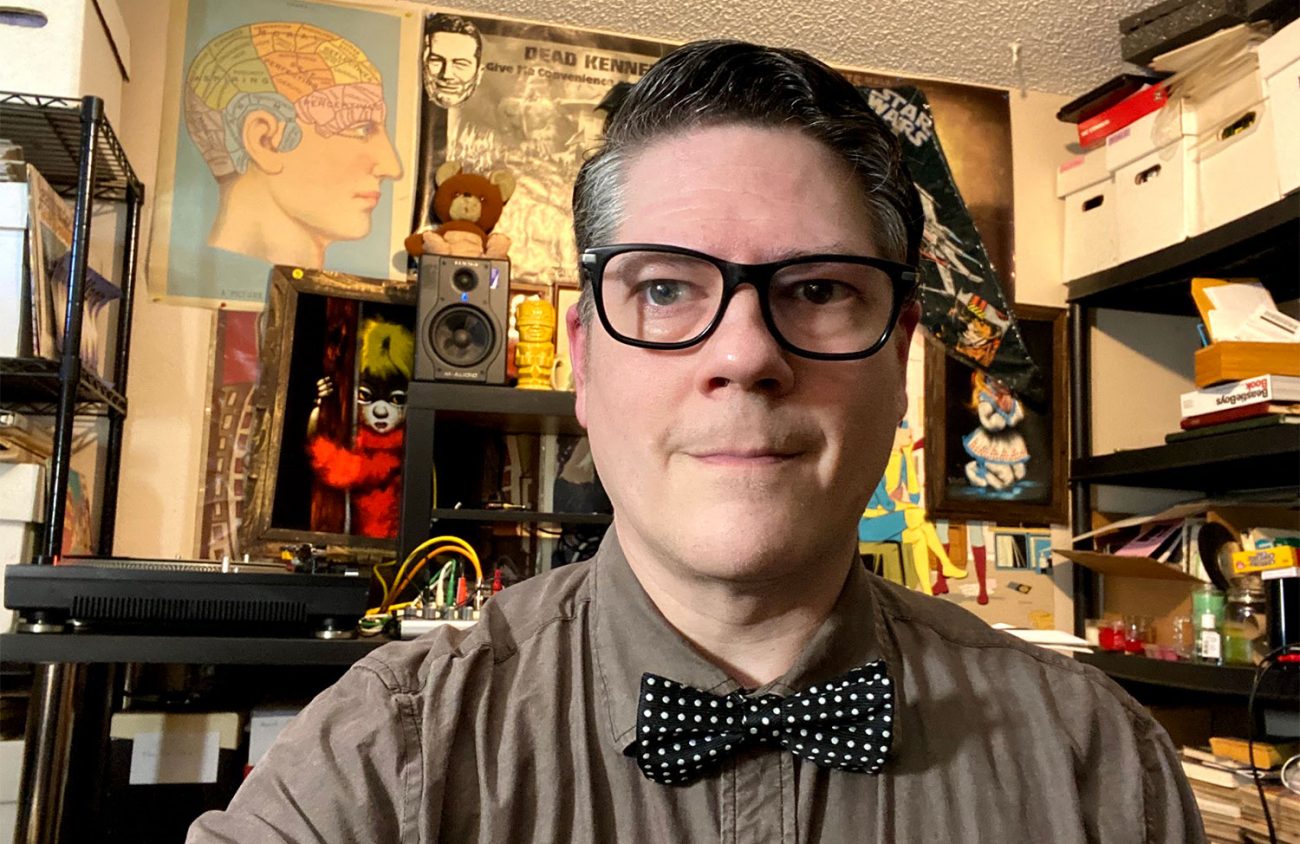The daily mail delivery has become a comfort — thanks to the depths of the pandemic and working from home, and despite the U.S. Postal Service becoming highly politicized in the 2020 presidential election.
Austin Rich, a Salem-based visual artist, writer, internet-radio host and musician with deep ties to the Eugene area, has turned the humble act of sending and receiving mail into political protest and a commentary on isolation.
As he put it to me the other day, simply sign up for Rich’s mailing list and he’ll deliver “concerts to your mailbox,” in the form of a monthly postcard with original art and a QR code that unlocks digital music.
“We’re living in this climate where suddenly the mail is this very politicized thing,” Rich tells me over the phone. “I can use this thing that I already use to have concerts in your mailbox, free of charge.”
In broad strokes, Rich’s music falls into two categories: experimental sound collage and traditional rock ‘n’ roll-based songwriting mixed with the Dadaist-tendencies of The Residents and Negativland.
Rich went to high school in Cottage Grove and after graduation lived in Eugene for a time in the mid-’90s. He’s still involved in several music projects in the Eugene area, namely DEATH MUTATIONS, which is a found sound collage and sampling project with Eugene-based artist I Died, from local Ghost House DJ nights. Some music fans may also remember Rich from the Eugene punk band Cathead, active in the ’90s.
Last spring, Rich was slated to support Negativland in Eugene at Old Nick’s, but the concert was canceled on account of COVID. In the past, he’s toured with Mark Hosler from the group, and next month, Rich will release a rock-based album under a project he calls ShotReverseShot.
His experimental, sound collage work isn’t explicitly topical, but recent work features chopped-up Mike Pence speeches; another reconfigures an old recording of Bing Crosby reading The Emperor’s New Clothes to say “the swindler’s new clothes.”
“I’ve always been attracted to things that are very political,” he says. Other interests include experimental performance art. “Often when you get involved in protests or activism, the music ends up being performative and abstract,” Rich explains. Instead, his work is more in tune with the moment rather than strictly how the song goes, Rich says.
Rich says Dylan Houser and Scott Bazer, friends as well as fellow musicians and artists from outside Oregon, inspired his postcard project.
“All my friends stuck at home waiting for the mail to come: can’t play shows, can’t go out,” he says. The postcards could be a way to get music to people without playing a show or leaving the house, he thought.
“I was blown away because it was so simple,” Rich continues. So simple, in fact, “We can’t be the only ones who landed on it.” But to the best of his knowledge, Rich might be among the few artists trying it, he says.
Sending physical media in the mail that plays music has been tried before, in the form of flexi-postcards with actual record grooves cut into them. Those postcards, however, proved expensive to make and not very durable. In the 1970s, the government of Bhutan also issued miniature postage stamp-sized 33 1/3 records that could be played on a turntable and used as postage. The Bhutan stamp records are now highly sought after by collectors.
Marc Time, a Eugene radio DJ, record collector and host of The Sunday Morning Hangover on KWVA, the University of Oregon’s campus radio station, is on Rich’s mailing list.
“Austin has been a fixture in the noise and experimental scene here for years,” Time says. The postcard project “is the perfect combination of old technology and new technology,” he continues.
Austin Rich’s postcards are free, though he does accept donations. To get on the mailing list and to keep up-to-date on all of Rich’s many projects, go to AustinRich.org.
